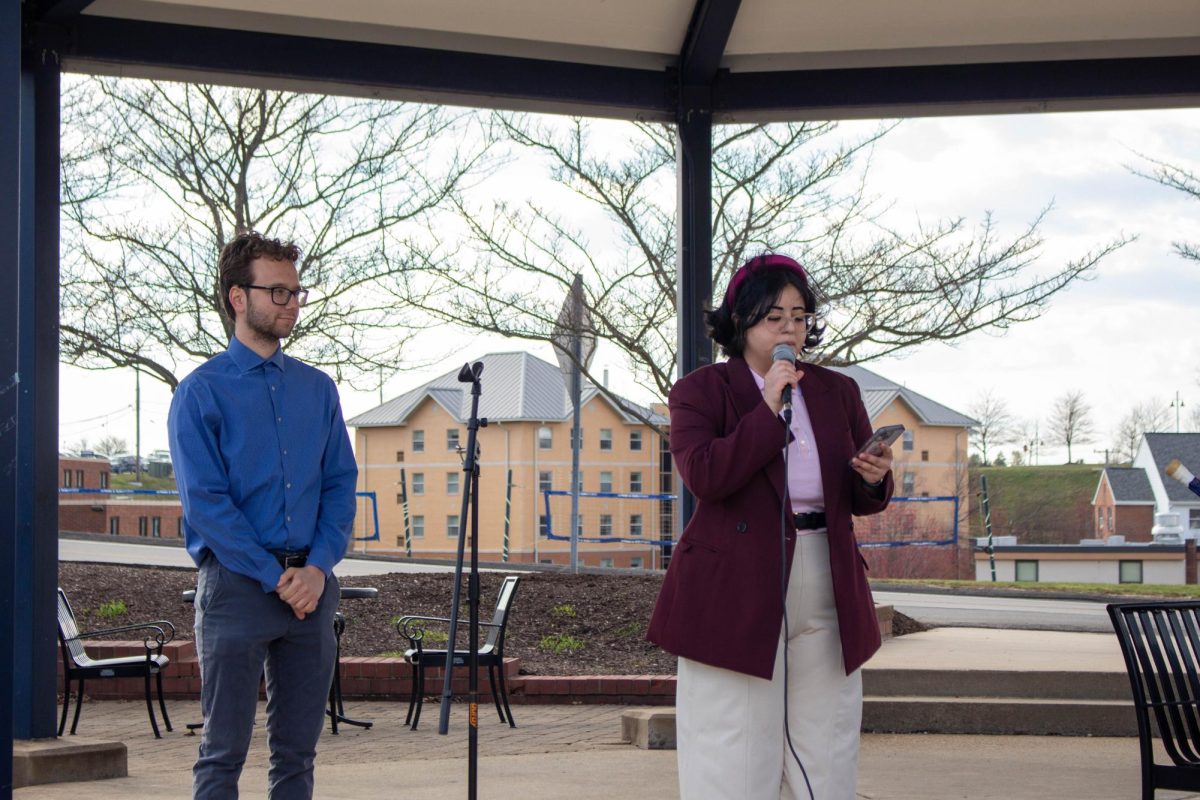As classes start back up, I’m sure we’re all feeling the familiar ache of homesickness. That nagging feeling serving as a perpetual reminder we are hundreds of miles away from all that we know; all of our family, all of our support system that held us steady for 18 years. Maybe you’re not hours and hours away from your hometown. In fact, maybe you’re no more than 30 minutes from all that’s familiar. Even so, you’re still homesick, right? It’s okay, you can be honest, we’re all friends here.
I’m homesick, you’re homesick, we’re all homesick. It’s no surprise we all miss our moms and our cats (sorry if I lost some of you dog lovers there I can only speak to what I know). I mean, that’s what college is about: going out on your own and carving away a life for yourself; no matter how badly you want to cling to the warm familiarity of your childhood. I know we’re all leaving home for the first time, we’re all choking on a vast new sense of independence. Trust me, I get it. So, what makes how I’m feeling so different?
Well, evidently a lot.
Separation anxiety is actually quite common, in toddlers that is. It’s considered to be a perfectly normal stage of an infant’s development. In fact, it’s a sign of the child’s attachment to their caregiver, which of course is a good thing. The majority of toddlers grow out of this stage by the time they’re 3 or 4. If the anxiety continues past what is age appropriate or returns when the child enters adulthood, it’s then categorized as a disorder. Separation anxiety disorder (SAD) is defined as, to put it simply, an extreme fear of being separated from a specific loved one. Here’s a brief, non-conclusive list of symptoms:
- Fear that something bad will happen to a family member during separation
- Fear of being abducted
- Fear of being left alone
- Following loved ones around the house
- Panic attacks when you can’t reach loved ones
- Social withdrawal
- Difficulty concentrating
Some physical symptoms also include:
- Stomachaches
- Headaches
- Dizziness
- Nausea and vomiting
- Trouble breathing
Just like any other disorder, there are certain risk factors to look out for. Some are obvious, like the loss of a loved one or having other types of panic disorders. But some are less easy to connect to separation anxiety, like OCD or agoraphobia. Although SAD can present in many different ways (ie. a parent with their child or between romantic partners), I can only provide insight on what I’ve gone through as a freshman leaving home for the first time.
Having separation anxiety as a college student is not as common as I would have thought. Although, I admit it’s always hard seeing beyond my own perspective. To me of course it’s difficult to imagine someone not feeling this way. Regardless, research currently shows up to 21% of college students suffer from separation anxiety. Maybe some of you reading fit into this statistic as well.
Now, I’m going to try and paint you a picture of my experience without oversharing so egregiously I’ll never be able to make eye contact with my fellow staff writers again. I want to provide context without dumping a bunch of unnecessary personal details on you poor, unsuspecting readers. So, please bear with me as I attempt to pull back some of these layers, while trying to display at least some semblance of professionalism.
Okay, I’m just going to rip the Band-aid off and tell you: my dad died when I was 12. Growing up my mom had to be both parents, my sister and I had to rely on her for everything. It was surprisingly only this summer that it became clear that all 3 of us suffered from severe separation anxiety, though there were definite signs going back years earlier.
As college inched ever closer, I couldn’t leave the house for more than a couple hours without being consumed with panic and wanting to race home. Over the summer, I went on a four-day camping trip with some friends out of state and you would have thought I just came home from serving overseas in WWII the way I reunited with my mom. As summer slipped away, I was horrified at the notion I would soon have to pack my life up and move 5 hours away. I wouldn’t be able to simply go downstairs and see my mom in 30 seconds if I was feeling panicky. But I did it, somehow.
So, then what happened? Did I wither away and die? Who knows?
For context, I moved in a week before everyone else did, so I’ve had a bit more time on campus. In the beginning, I was okay, but by the time classes started, the anxiety had settled like a stone in my chest. I’ve been absolutely terrified that, if I’m away from home for too long, another tragedy will strike my family and I’ll be left all alone. Loss is like a black hole, you can only assume it will keep growing and growing, like a starving animal whose hunger can never be satiated. Grief creates that fear, and it only swells greater with time, threatening to consume everything in your life. It’s a panic that’s often quite hard to articulate. How can you communicate something so elusive, something that’s completely invisible to everyone else? If someone asks me what’s wrong, what am I supposed to say? That I just miss my mom? I do, more than anything, but it’s also so much more than that. It feels like my throat is filling up with tar, silently choking me. I’m gasping for air, coughing and gagging. My heart is being pummeled, squeezed and flattened between two hands in my chest. My thoughts race, filling my brain with toxic gas. I try calling my mom to assuage the growing panic but hearing her voice immediately pushes me to tears. But whatever quiver is in my voice, whatever note of worry, is mirrored in my mother’s words as well. We never talk about it but I know she too has that debilitating worry that’s slowly eating us both alive.
Pretty much everyone in my life asked me at some point during the summer if I was excited for college. “Yes,” I would reply. “But I’m really nervous about leaving my mom.”
They would always respond with some variation of: “don’t worry, everyone’s feeling the same way.” I know they’re just trying to be nice and make me feel better, but it doesn’t. It makes me feel markedly worse actually. I had to just force a smile and nod, because I simply have neither the energy nor conviction to argue anymore. But no, everyone is not feeling what I’m feeling, and of course that’s not a bad thing. I’m just tired of acting like all this turmoil is something college kids as a collective have to deal with; like some shared burden. When it’s decidedly just not.
I’ve had this article inside me for a long, long time. Before I even knew what separation anxiety was, these feelings were brewing beneath the surface. Ideas were taking root as I subconsciously picked apart the differences between my family and everyone else’s. Since it’s finally clawed its way out, I hope it has provided at least a little insight or solace: for those who have been plagued with loss, and for those who haven’t, whichever of the two you may be.
Sources: mayoclinic.org and my.clevelandclinic.org










